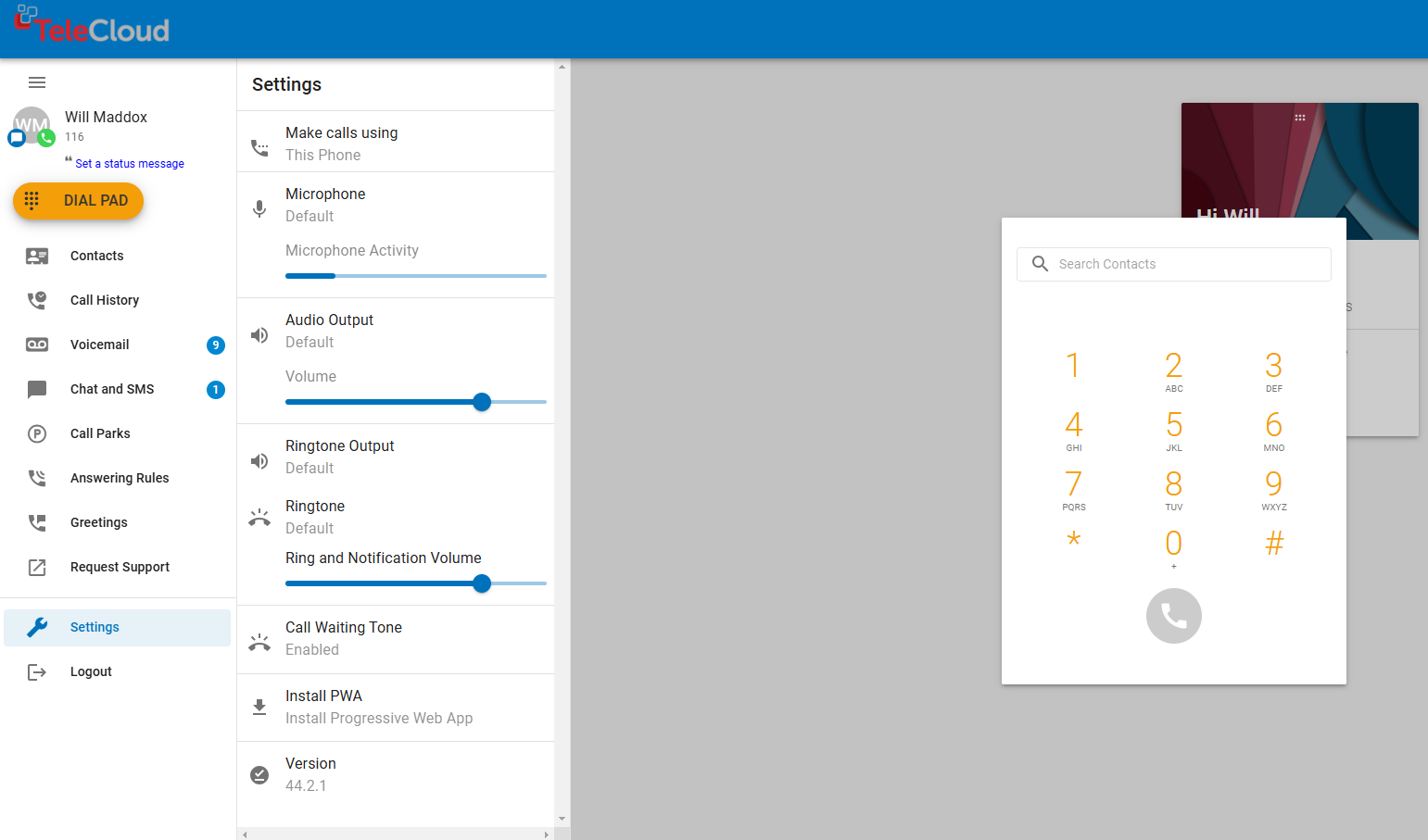
Search for topics or resources
Enter your search below and hit enter or click the search icon.
Updated: November 26th, 2024 | Published: May 11th, 2016
2 min read

Traditional desk phones have been a staple of office communication for decades, but as workplaces evolve, so do our tools. Enter the softphone—a software-based phone that works through your computer, laptop, or mobile device.
Softphones are the perfect solution for businesses prioritizing flexibility, mobility, and cost-efficiency. In this blog, we’ll explore what a softphone is, how it works, and why it’s becoming an essential tool for modern businesses.
A softphone is a software application that allows you to make and receive calls over the Internet using a VoIP (Voice over Internet Protocol) service. Instead of relying on a physical phone, a softphone mimics the interface of a traditional phone directly on your device, complete with buttons, caller ID, and voicemail access.
Imagine replacing your desk phone with your laptop or smartphone, all while keeping the same features—and adding new ones like video conferencing and instant messaging.
Softphones leverage the power of VoIP to convert your voice into data, transmitting it over the internet to connect with other phones worldwide. Here’s what you’ll need to get started:
With these components, you’re ready to call, message, and collaborate from anywhere.
Softphones are designed for today’s flexible, fast-paced work environments. Here’s how they meet modern communication needs:
Softphones let employees make and receive calls from any location, whether they’re in the office, working remotely, or traveling abroad. Unlike desk phones, softphones allow users to stay connected without being tied to physical equipment.
Traditional phone systems come with high infrastructure and maintenance costs. Softphones eliminate the need for hardware, cutting expenses while offering advanced features.
Softphones aren’t just phones—they’re complete communication tools. Features like visual voicemail, video conferencing, instant messaging, and multi-party calling make collaboration easier and more efficient.
Employees no longer need to give out personal phone numbers. Softphones connect to your business number, protecting employee privacy while maintaining professionalism.
For global businesses, softphones offer affordable international calling. As long as there’s internet access, employees can stay connected without the headaches of roaming fees or calling cards.
While softphones are an excellent choice for most businesses, they’re not without limitations:
The rise of remote work and hybrid teams has made softphones an indispensable tool. Millennials and Gen Z professionals, in particular, value flexibility and efficiency in their work environments, and softphones deliver both.
The shift to softphones reflects the broader trend toward mobility and innovation in communication. Traditional desk phones are quickly being replaced by software that integrates seamlessly with modern workflows. With built-in tools like analytics, call logs, and instant messaging, softphones are poised to become the go-to solution for forward-thinking businesses.
If your business is ready to embrace modern communication tools, a softphone is a smart choice. TeleCloud’s VoIP systems are fully compatible with softphones, ensuring a seamless transition from traditional desk phones to a flexible, cost-effective solution.
Contact us today to learn more about softphones and how they can transform your business communications. Reach out below to start your journey toward smarter, more efficient communication.
damon@telecloud.net